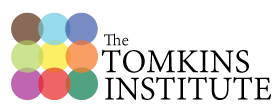Goals:
- Be able to describe major aspects of the affect system and its characteristics.
- Discuss the role of affects in forming motivation using examples from psychotherapy, or your chosen discipline (politics, education, law, etc.)
Readings:
EA, “The Quest for Primary Motives,” pp. 27-63.
SAT, Donald L. Nathanson, “Where Affect Fits in Psychotherapy,” June 25, 1998.
Bulletin, v1, #3-4, 1994, Donald L. Nathanson, “Stress and Tension,” pp. 17-19.
Bulletin, v1, #1, 1994, Vernon Kelly, “Intimate Notes,” pp. 5-6.
Discussion Questions:
- How did Tomkins develop his interest in affects?
- What affect mechanisms does cognitive theory fail to address?
- What accounts for differences in the activation of innate affect?
- What is the primary function of the affects?
- What three principles are responsible for successful operation of the affect system?
- Which is the more powerful source of motivation—affects or drives?
- How do urgency, abstractness and generality serve in the affect system?
- Explain this principle: “Without affective amplification nothing else matters, and with its amplification anything can matter.”
- What factors encourage societies to regulate and magnify affects?
- How does affect regulation lead to confusion about the experience of affect?
- What are the primary affects?
- Does Tomkins believe it is useful or essential to classify affects by their causes?
